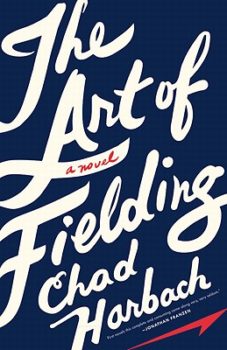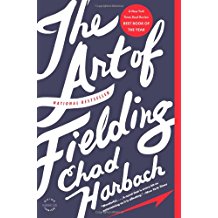


Now the runner was closing in, and Henry had no choice but to throw it hard, really hard, too hard for Ajay to handle from 30 feet away.” This is the paradox of sports novels, which like all novels thrive by leaving their heroes vulnerable and exposed: the worse the play, the better the fiction.Īs befits a shortstop, Henry is the linchpin around which the book’s other major characters revolve. He’d thrown the last one too soft, better put a little mustard on it - no, no, not too hard, too hard would be bad too. Instead of rifle shots fired at a target, they felt like doves released from a box.” If it’s painful to watch Henry fall apart, it’s excruciating to track his dissolution thought by anguished microthought: “The distance called for a casual sidearm fling - he’d done it ten thousand times. “Both times he double-clutched and made a soft, hesitant throw. “Only two balls were hit to Henry,” Harbach writes in one of many crisp passages about what it’s like to play the game. It’s also a campus novel and a bromance (and for that matter a full-fledged gay romance), a comedy of manners and a tragicomedy of errors - the baseball kind as well as the other kind, which as Alexander Pope pointed out also has something to do with the human condition. If it seems a stretch for a baseball novel to hold truth and beauty and the entire human condition in its mitt, well, “The Art of Fielding” isn’t really a baseball novel at all, or not only. The Human Condition being, basically, that we’re alive and have access to beauty, can even erratically create it, but will someday be dead and will not.” The indictment amounts to a kind of category error detractors went looking for entertainment, and found art instead.Ĭhad Harbach makes the case for baseball, thrillingly, in his slow, precious and altogether excellent first novel, “The Art of Fielding.” “You loved it,” he writes of the game, “because you considered it an art: an apparently pointless affair, undertaken by people with a special aptitude, which sidestepped attempts to paraphrase its value yet somehow seemed to communicate something true or even crucial about the Human Condition. Guilty, and so what? You may as well complain that lemons are too yellow. The only realistic response is a resigned shrug. To defenders of baseball and literary fiction, the charges against each are familiar, and overlapping: too slow, too precious, not enough action.


 0 kommentar(er)
0 kommentar(er)
